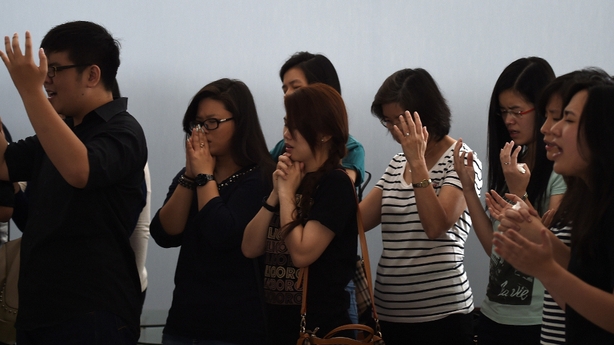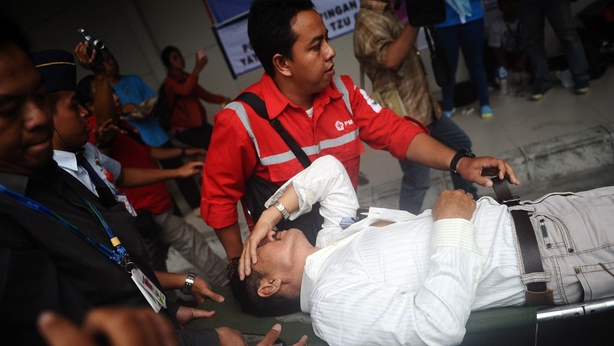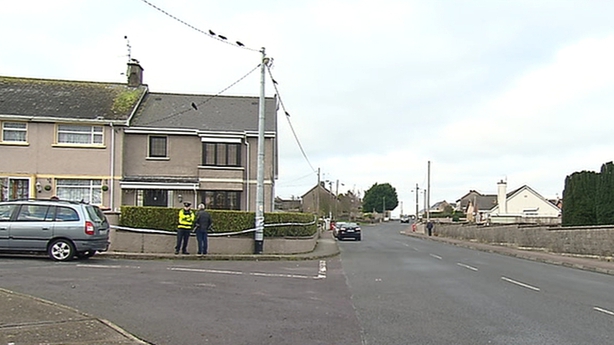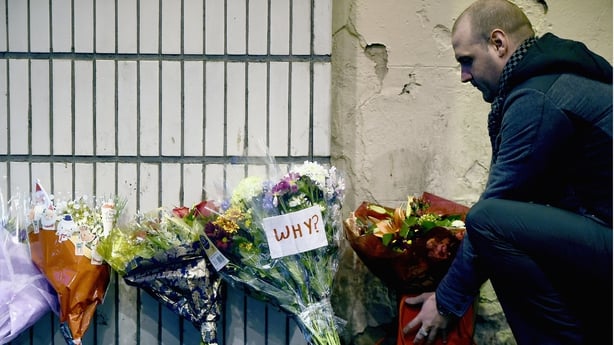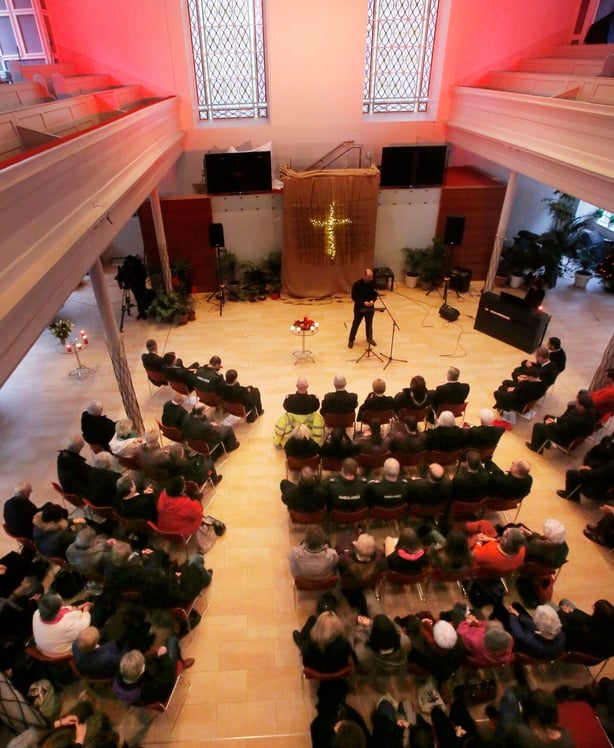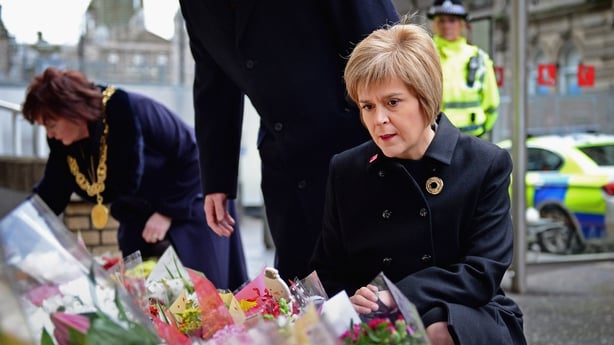The High Court has been told that there is no reasonable prospect for survival for an unborn child whose mother is clinically brain dead, even if life support was to be continued.
The mother is almost 18 weeks' pregnant.
Lawyers for the Health Service Executive told the High Court that the HSE's position was that based on the medical evidence to be called, there was no reasonable prospect of the unborn child being born alive if life support measures were continued.
Senior Counsel Gerry Durcan told the court it was not practicable to vindicate any right to life of the unborn child in this case.
He said the HSE believed the appropriate declaration for the court to make was that the discontinuance of life support was lawful in the circumstances of this case.
The court heard the woman's father wants the life support machine turned off and this application is being supported by her partner and father of the unborn child, and her extended family.
Lawyers for the woman's father said the Eighth Amendment to the Constitution dealing with the equal rights to life of the mother and the unborn child did not apply in this case, as the unborn was of such a young gestational age when the mother died that it could not be viable.
The woman's father told the court he was told his daughter was dead at the end of November.
He said he was told she had to be put on life support because the unborn had a heartbeat and he found this very "distressful".
The woman's father said he believed she was slowly deteriorating and did not look like his little girl.
He said the family had discussed the situation and had come to the decision that the life support machine should be turned off.
The man said his daughter was dead and the chance of the unborn surviving was minimal.
The woman has two other children, who had both visited their mother.
He said they had been told that their mummy was sick and was being looked after by nurses until angels came to get her.
The man said the youngest child refused to look at the woman while visiting her at the last visit.
The oldest child had become very emotional afterwards and asked if that would be the last time to see mummy.
The father told the court he wanted his daughter to have dignity and to be put to rest.
The father of the unborn child also gave evidence to the court.
He said he had discussed the matter with his partner's father and they believed it was the best decision and they were happy about it.
He said his partner was happy about the pregnancy and they had discussed names for the child.
Woman not alive at any level - expert
An expert in intensive care medicine, Dr Brian Marsh, said in his opinion, the woman was not alive at any level, medically speaking. He said she had become a corpse.
Dr Marsh said he had seen her last night and he said his best judgment was that sustaining this patient was not feasible for a long period of time.
He said the unborn child would need to be brought to around 32 weeks' gestation and he did not believe that was possible.
Dr Marsh said the ongoing environment for the unborn was abnormal and may lead to injury or damage to the unborn.
He said he did not believe the unborn could survive and did not believe it was appropriate to continue the level of support the woman was being given.
Dr Marsh said there had been two other similar cases reported in Ireland.
In both cases, the foetus had died within a relatively short period of time. These were also at a very young gestational age.
Internationally, he said, there were a total of nine similar cases and three babies had survived.
Opening the application, Senior Counsel, John Rogers, for the woman's father, said the woman had been admitted to hospital in late November suffering from headaches and vomiting.
She had fallen on 29 November and had become unresponsive. Her time of death was recorded at 5.20pm on 3 December.
Mr Rogers said lawyers for the woman's father were of the view that the Eighth Amendment to the Constitution dealing with the right to life of the unborn was not applicable in this case.
He said because of the gestational age of the foetus when the mother died, there was no real likelihood of the viability of such an unborn.
Mr Rogers said the father wanted his daughter's death accomplished with appropriate dignity and that had been interrupted. That is why we are here, he said.
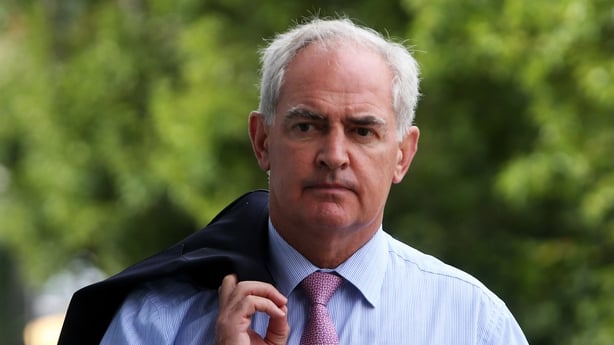
Expert consultant obstetrician Dr Peter Boylan (above) told the court this was an extraordinarily rare situation.
He said he could not find cases where there had been successful outcomes where life support had been begun where the foetus was at a gestational age of 13 weeks.
Dr Boylan said he was in no doubt that the continuance of life support in this case was "experimental" and he said doctors were in "uncharted territory".
He said the woman had been declared dead on 3 December after doctors established there was no blood flow to the brain.
Dr Boylan said hospital notes showed the next day, the family had been spoken to at length about the interpretation of Irish constitutional law.
He said the family was obviously concerned about why she was not being allowed to die with dignity and the constitutional position explained to them.
Dr Boylan said the doctors at the Dublin hospital were right to seek legal advice.
He said that legal advice left them with little choice but to continue life support, even against the wishes of the next-of-kin.
He said doctors in this country were unclear what they could do as a consequence of the Eighth Amendment.
They were not legally qualified and had to be guided by the courts.
Dr Boylan agreed that the introduction of legal and medical guidelines would be extremely helpful.
He said the removal of the Eighth Amendment would be even more helpful.
However, he said the circumstances in this case were entirely different from an abortion.
He said the unborn in this case was effectively in an intensive care unit in its mother's womb. He said care could be withdrawn from both, which would allow the mother to be buried.
Dr Boylan said this would be entirely different from a termination.
He said one concern was that the unborn could be born extremely prematurely due to the mother's body suffering a severe infection.
This could result in the worst of all worlds, where you could have an extremely sick premature newborn with severe difficulties.
Dr Boylan said the mother is being maintained in a regional hospital that does not have the neonatal facilities available in the main Dublin maternity hospitals.
The consultant obstetrician said in any other jurisdiction the woman would be allowed to die with dignity.
He said the most ethical action would be to stop life support in line with the wishes of the next-of-kin.
Dr Boylan also said, at the moment, there was no indication that the unborn was compromised in itself.

